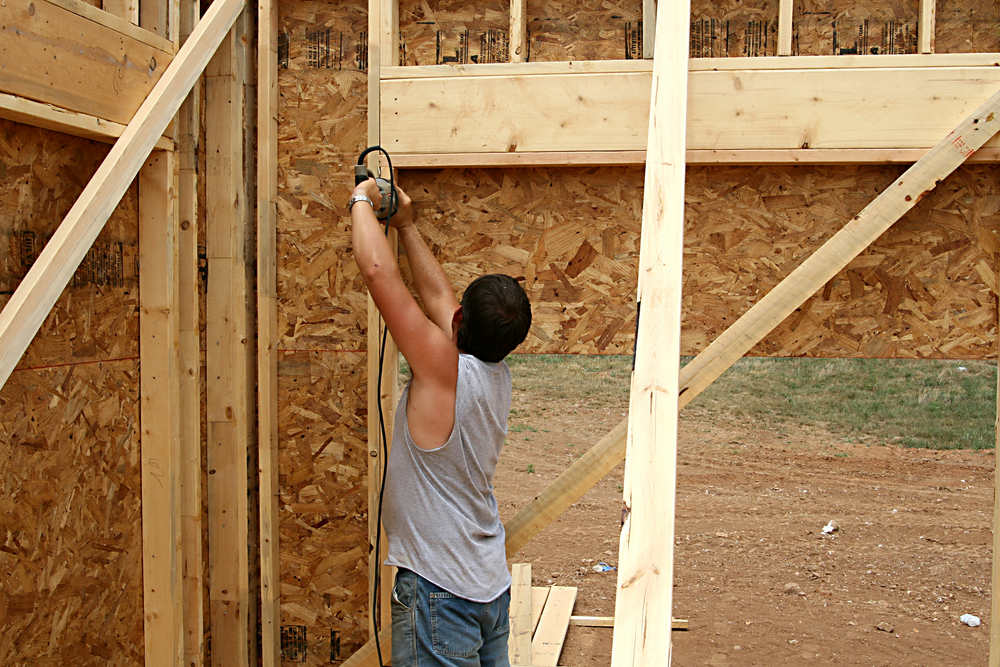Congratulations! You own some property and have commissioned or purchased a floor plan you like-the time has come to build your dream house. Here in the Pacific Northwest, it really doesn’t matter what the current season because we don’t have that many below-freezing temperatures to deal with in the winter. You may feel ready to dive right in and construct your own home from the ground up, potentially saving the cost of hiring a general contractor and immersing yourself in the nuts and bolts of the construction process. However, before embarking single-handedly on the adventure of building a home, take some time to consider your decision carefully. While acting as your own general contractor can be an exciting and worthwhile experience, it also can be a complicated, technically demanding and time-consuming commitment. For many reasons, hiring an experienced professional to handle the day-to-day aspects of the building process can be an excellent decision, and one that ensures that the end result is a comfortable, well-built home for you and your family.
A general contractor has significant experience in the actual home building process.
Building a home is a complex activity. Although your subcontractors will provide specific expertise in areas like pouring the foundation and wiring the house, if you act as your own contractor you will need to consider your ability to manage the overall process. Do you know the order in which activities must be completed, and have the technical know-how to oversee the construction of your home from start to finish? If you are unsure about your expertise in some areas, it pays to hire a general contractor to direct the building process; he or she will be familiar with both the big-picture activities and the smaller details that are equally important to a well-built home.
Building homes is a general contractor’s “day job.”
Building a home can be a full-time job. If your “day job” is demanding and allows you little free time, consider hiring a general contractor, since it can take up to three or four months of daytime supervision to build a home from foundation to rooftop. Just as you have significant expertise in your field, general contractors are well-versed in the day-to-day activities of home construction. For example, a contractor will know how to find qualified subcontractors, ensure that they arrive at the right time, in the right order, with access to the right materials; he or she then will oversee their work. A general contractor also is responsible for scheduling not only the subcontractors, but also securing any necessary permits, building to the specifications of your plans and local building codes, and scheduling the inspections by various agencies that must be completed before work can continue. Finally, when it comes to everyday troubleshooting, a general contractor can be priceless. Small setbacks can turn into much larger issues if they are not handled quickly, and a contractor will spend much of his or her day smoothing out any wrinkles that arise.
A general contractor has the relationships to get the job done.
When you hire a contractor, you also obtain access to a specialized network of information and resources. Professional builders generally have well-established relationships with reliable subcontractors like electricians and plumbers, and familiarity with the time it takes to complete various phases of the building process, which a novice owner-builder can lack.
For example, a contractor will have a pool of subcontractors who will be willing to work on your project, even if that means working extra hours in order to finish a job. As a homeowner, you may not have such an advantage. Subcontractors don’t know if you will be a professional and organized boss, and more importantly, they are aware that this is probably a one-time job, which can result in you being low on the priority list for scheduling. When you work with a contractor, you benefit from the higher scheduling priority given to well-known professional builders who need services on an ongoing basis.
A general contractor is prepared to deal with complications and delays in construction.
An experienced contractor already knows about the pitfalls involved in building a home, and can find solutions more easily because he or she deals with these problems every day. For example, in case of a natural disaster, contractors have the knowledge-and more importantly, the time-to prepare your jobsite for impending heavy rain or high winds. Bad weather can wreak havoc on your schedule and even the quality of construction, and a professional can help you avert these potential problems.
A general contractor knows about building codes and other legal issues.
Construction in virtually all jurisdictions is regulated by building codes, primarily for the purpose of providing minimum standards of health and safety for the public. A general contractor deals with building codes in your area on a daily basis, and likely has learned the best and fastest ways to comply with the maze of rules and requirements. However, building codes are just the tip of the legal iceberg when it comes to constructing a home. What happens if you, your neighbor or someone you’ve hired gets injured while your home is under construction? Proper liability insurance is essential, and may be complicated and expensive to obtain on your own; however, professional contractors generally carry both worker’s compensation and liability insurance to protect themselves-and you-against any unfortunate events.
Finally, remember that if you build your home yourself, there is no warranty for your own work, and you are ultimately responsible for the quality of your project. Depending on your agreement with your general contractor, you can ease much of this burden and place your home in the hands of an experienced professional who can quickly and efficiently address any problems.

